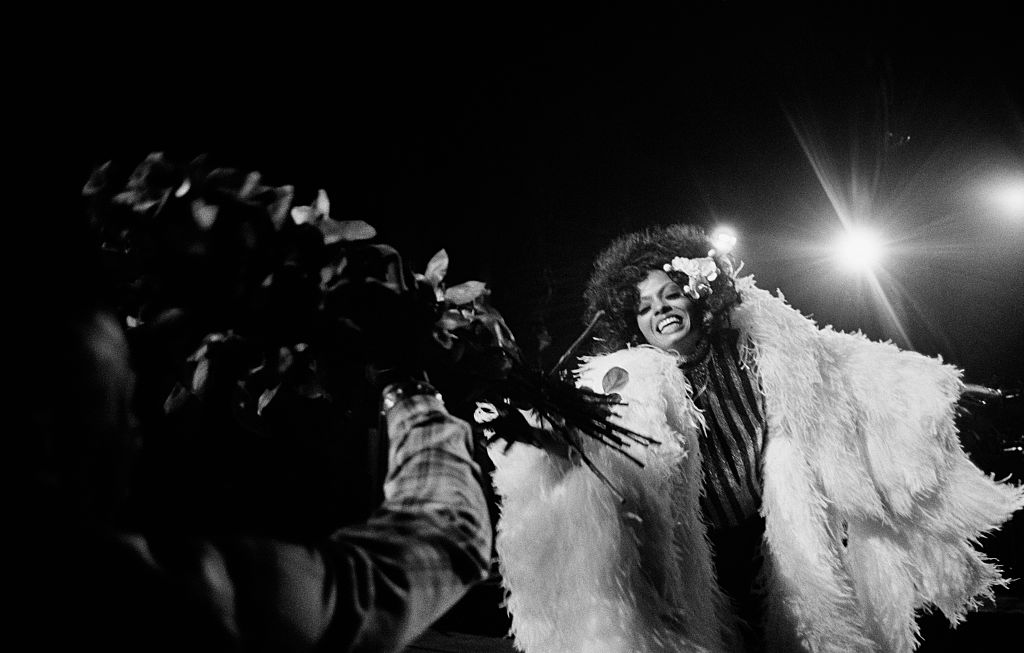
- Film
50 Years of “Lady Sings the Blues”: Celebrating Billie Holiday’s Music and Diana Ross’ Performance
In 1972, Diana Ross, then better known to the public as the topliner of the Supremes, burst on the movie scene with a stunning performance in Lady Sings the Blues, a biopic of the legendary jazz singer Billie Holiday.
For that splashy feature debut, Ross earned two Golden Globe nominations, for Best Actress in a Motion Picture-Drama and for Most Promising Newcomer-Female, winning the latter. The movie was also nominated for a Golden Globe Motion Picture Score written by Michel Legrand.
The tale, directed by Sidney J. Furie and produced by Motown Productions for Paramount Pictures, was penned by Suzanne de Passe, Chris Clark, and Terence McCloy. It was very loosely based on Holiday’s 1956 autobiography, which, in turn, took its title from her songs.
Full of showbiz cliches, and seriously deviating from the facts of Holiday’s real life, Lady Sings the Blues was nevertheless vastly entertaining and a commercial hot at the box office.
The story begins in New York City in 1945, when Eleanora Fagan, aka Billie Holiday, is arrested on a drug charge.
Following a brief scene, there’s a flashback to 1928, when Billie is working as a housekeeper in a Baltimore brothel. When she returns to her aunt’s house, she is raped by a man (Harry Caesar) who followed her home from the brothel. She runs away to her mother Sadie (Virginia Capers), who sets her up in a job cleaning in another brothel in Harlem.
The brothel is run by arrogant and selfish owner Lorraine, who pays Billie little money. Eventually, Billie tires of scrubbing floors and becomes a prostitute, but later quits and returns to a nightclub to unsuccessfully audition to become a showgirl. After she sings “All of Me,” the club owner Jerry (Sid Melton) books her as a singer in the show.
Billie’s debut begins unsuccessfully until Louis McKay (Billy Dee Williams) arrives and gives her a $50 tip, which encourages her to sing “Them There Eyes,” and a romantic relationship begins.
Eventually, she is discovered by Harry and Reg Hanley, who sign her as the soloist for their southern tour, hoping to land a radio network gig. During the tour, Billie witnesses the aftermath of the lynching of an African-American man, which motivates her to record the devastating and brilliant song “Strange Fruit.”
The harsh experiences on the tour result in Billie taking drugs, which Harry supplies after Billie collapses on stage. In her dressing room, Louis notices needle marks, and Billie promises to stay off the drugs if he stays with her.
Billie returns to the Harlem nightclub, where her drug use intensifies until she hears of the death of Sadie. She checks herself into a drug clinic, but she cannot afford the treatment. The hospital then secretly contacts Louis, who pays the bills without her knowledge. Just as things are looking up, Billie is arrested for possession of narcotics and removed from the clinic.
In prison, Billie goes through crippling withdrawal and emotional incoherence. Upon ending her prison sentence, Billie returns home, determined not to sing anymore. However, the lure of performing is too strong and she returns to singing with Louis as her manager. Unfortunately, her felony conviction has stripped her of her Cabaret Card, which would allow her to sing in NYC nightclubs.
In the end, Billie plays to a packed house at Carnegie Hall, and her encore, “God Bless the Child,” is a smash. But the concert fails to sway the commission to restore her license. Later re-arrested on drug charges, she finally dies at the young age of 44.
The filmmakers must have been aware of the script’s problems for they make the clever decision of concluding the saga by showing Holliday’s Carnegie triumph as an experience frozen in time.
Relying on her beauty, wit, and voice, Ross rises triumphantly above the limitations imposed on her by a banal screenplay that takes too many liberties with the facts. She renders an astonishing performance, full of power and pathos, turning a troubled life and career into an enormously engaging and sympathetic portrait.
The supporting cast is also impressive, including Billy Dee Williams as Louis McKay, and the very young Richard Pryor as the Piano Man.
50 years later, Lady Sings the Blues is worth seeing for Ross’ emotionally naked performance and for the other entertainment values of the film, which went on to reintroduce Holliday and bring back her unique voice and singular music to younger generations of viewers and jazz lovers.
The 1972 film serves as a good companion piece to last year’s The United States vs. Billie Holiday, a more accurate if more narrowly focused, biopic, starring Andra Day in a performance that earned her the Golden Globe Award for Best Actress in Drama.